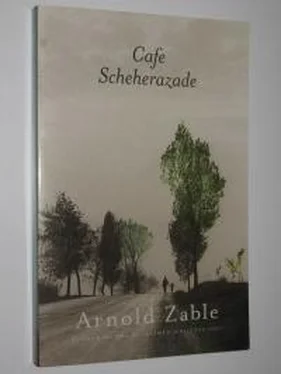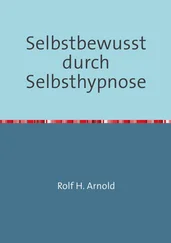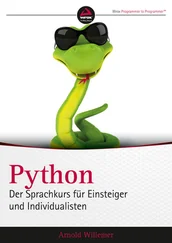Arnold Zable - Cafe Scheherazade
Здесь есть возможность читать онлайн «Arnold Zable - Cafe Scheherazade» весь текст электронной книги совершенно бесплатно (целиком полную версию без сокращений). В некоторых случаях можно слушать аудио, скачать через торрент в формате fb2 и присутствует краткое содержание. Город: Melbourne, Год выпуска: 2001, Издательство: Text Publishing Company, Жанр: Проза, на английском языке. Описание произведения, (предисловие) а так же отзывы посетителей доступны на портале библиотеки ЛибКат.
- Название:Cafe Scheherazade
- Автор:
- Издательство:Text Publishing Company
- Жанр:
- Год:2001
- Город:Melbourne
- ISBN:нет данных
- Рейтинг книги:4 / 5. Голосов: 1
-
Избранное:Добавить в избранное
- Отзывы:
-
Ваша оценка:
- 80
- 1
- 2
- 3
- 4
- 5
Cafe Scheherazade: краткое содержание, описание и аннотация
Предлагаем к чтению аннотацию, описание, краткое содержание или предисловие (зависит от того, что написал сам автор книги «Cafe Scheherazade»). Если вы не нашли необходимую информацию о книге — напишите в комментариях, мы постараемся отыскать её.
Cafe Scheherazade — читать онлайн бесплатно полную книгу (весь текст) целиком
Ниже представлен текст книги, разбитый по страницам. Система сохранения места последней прочитанной страницы, позволяет с удобством читать онлайн бесплатно книгу «Cafe Scheherazade», без необходимости каждый раз заново искать на чём Вы остановились. Поставьте закладку, и сможете в любой момент перейти на страницу, на которой закончили чтение.
Интервал:
Закладка:
As they climbed, Zalman was overwhelmed by a sense of wonder. The entire day had been a reverie. He had been entranced by the beauty about him, the symmetry. He had been seduced into a sense of security, of being in capable hands. He had journeyed through a land of strange gods and fast-flowing streams. Yet, like so many of the men about him, he could not forsake the thought of those they had left behind with the promise of better days.
They still clung to that hope. They talked politics incessantly.
They clutched at every possibility. They fantasised about moving to America, Australia, Canada or Palestine. At night they lay on tatami mats and conjured impossible futures; and they arose each morning from the homes the Jews of Kobe had rented for them, within the European settlement, and descended to the community centre.
It stood at the foot of the hills, a cluster of rooms in a narrow lane. They would come to know it well, the several thousand refugees who were to pass through Kobe in the spring and summer of 1941. They spent many hours in these rooms 107 where they filled in forms, read papers and listened intently to communal radios, to each shred of news.
Zalman can still see the cramped offices, the metal filing cabinets, the battered wooden desks. He can smell the kerosene heaters and feel the morning sun through the windows, relieving the gloom. And to this day he can recall the pounding of his heart, as he stood, each morning afresh, at the communal bulletin board, in the hope of a message from "home", thousands of kilometres to the west.
Zalman would scan the board, shrug his shoulders, and move out into the streets. The news was rarely good. The armies of the
Third Reich continued their murderous drive. Visa applications were being rejected, doors were being sealed. What else was there to do but walk?
He walked past stalls laden with bananas and tangerines. He stopped at shops selling herbs and spices he had never smelt before. He inhaled the aroma of fried foods sold by market vendors who lined the way. He wandered lanes teeming with women in grey kimonos, ferrying babies upon their backs. He saw passers-by dressed in army jackets and khaki pants. Radios blared martial music. Makeshift cooking stoves lined the sidewalks. The scent of frying fish curdled the air. Bicycles and rickshaws thronged the streets. A military motorcade glided by.
He descended to the flatlands and walked towards docks lined with military hardware. Tanks and artillery sweated under tarpaulins.
Warehouses sprawled beside the wharves. Officers strutted the foreshore.
108
Zalman returned to the heights. He traced a well-worn path to a neighbourhood park. He sat on a bench overlooking the harbour. He gazed at hillside cottages tiled in crimson and blue. He noted the strands of bamboo, the beds of camellias in full bloom. He observed the first buds of plum blossoms. His treks would always end here, by the park bench, overlooking the city.
At nightfall Zalman would return to the two-storey brick house he shared with a group of single men and two families. Directly opposite stood a house occupied by Germans. On a white pole, above the roof, fluttered the Nazi flag. They would pass each other occasionally, German merchants and stateless Jews, without uttering a word; and more than ever, Zalman felt that he was living in an illusion, within a remote kingdom into which he had blundered by pure chance. There was nothing he could do but bide his time. Walk. Embark on excursions to the hinterland.
He joined a group of friends on an outing to the resort town of
Takarasuka, renowned for its women's theatre. The town was ablaze with spring blossoms. Zalman sat with his group of companions in the Takarasuka Grand Theatre and gazed at a revolving stage on which they saw epic battles between Samurai warriors, Moulin
Rouge-style can-can chorus lines, gladiatorial contests set in ancient Rome, and Broadway-inspired song-and-dance routines, performed in an eccentric theatrical amalgam of west and east.
The boundaries of the world seemed to be dissolving. The foundations were melting beneath his feet.
109
On one of his walks Zalman came across a small cafe, a cluster of seats in a dimly lit room. He was drawn inside by the sounds of a
Schubert sonata. A Japanese woman dressed in a kimono served icecream sodas and ersatz coffee. When the music ceased she returned to the record player and replaced the sonata with a Chopin polonaise.
There were six clients before him, awaiting their turn. When their request had been played, they moved on to make way for new customers. The waitress approached Zalman and handed him a booklet filled with a list of titles. He chose the final movement of a Tchaikovsky concerto.
The cafe was the brainchild of a Japanese with a passion for classical music. Signs on the wall indicated it was forbidden to talk. If a customer disobeyed, the owner would stop the music and frown. The cafe was for music lovers only.
Zalman became more attuned to the nuances of the senses. He began to discover, on his daily walks, crevices of peace: the tinkling of a wind chime, the sight of Shinto priests hurrying by, otherworldly in their white gowns and black hats; a glimpse of an old man in a secluded garden; the chant of a Buddhist monk echoing from a neighbourhood temple; the sing-song prayers of rabbinical scholars from Poland, flowing from their temporary house of worship.
Zalman had been raised in a family of free thinkers, of socialists and secular Jews. Yet he could recognise in both the
Buddhist chants and the Hebrew prayers the same yearning for harmony in a world gone mad. He heard it also in the music 110 cafe, during his frequent visits: that particular moment within the trembling echo of a single note; a moment of sudden clarity and pure tone.
It was in the cafe, between recordings, that he was told by a fellow patron that a Japanese opera company in Osaka, a city thirty kilometres from Kobe, was to perform Giuseppe Verdi's La
Traviata. Zalman would never forget the details of the following day. In the morning he collected money from fellow opera lovers among the refugees and travelled to Osaka to purchase the tickets.
When he arrived at the Osaka station, Zalman approached a policeman directing traffic in the middle of a busy intersection, and asked him the way to the Kabuki-za theatre. The policeman halted the traffic and guided him to a tram stop. He remained with Zalman until he found someone who could direct him further.
A bystander escorted him onto a tram. Fifteen minutes later they arrived at the theatre. Zalman purchased the tickets and that evening he returned from Kobe, with his party of friends, to attend the opera.
The Japanese performers looked somewhat stiff and uncomfortable in their rendition of Italian arias. Yet there was an addictive charm about their attempts to emulate a culture far removed from their own. The performance worked its own magic. Arias came to resemble hypnotic chants. The fluid movements of the west slid into the stylised stage movements of the east. The conventions of
European opera merged with 111 the rituals of a Kabuki play. Zalman was entranced.
After the performance he wandered the streets of Osaka with his companions. They savoured the summer air. "A year ago who would have thought it possible," they mused, "that we would be watching
La Traviata in Japan?" They returned to Kobe in high spirits, and the following evening they learnt that the armies of the Third
Reich had invaded Russia.
As they began to absorb the news on that June night, in the
Japanese summer of 1941, they knew their world could no longer be the same. Within days they heard that sections of Vilna were in flames. More than ever they were isolated from the loved ones they had left behind. More than ever they were plagued by a sense of guilt and unbearable longing.
Читать дальшеИнтервал:
Закладка:
Похожие книги на «Cafe Scheherazade»
Представляем Вашему вниманию похожие книги на «Cafe Scheherazade» списком для выбора. Мы отобрали схожую по названию и смыслу литературу в надежде предоставить читателям больше вариантов отыскать новые, интересные, ещё непрочитанные произведения.
Обсуждение, отзывы о книге «Cafe Scheherazade» и просто собственные мнения читателей. Оставьте ваши комментарии, напишите, что Вы думаете о произведении, его смысле или главных героях. Укажите что конкретно понравилось, а что нет, и почему Вы так считаете.












